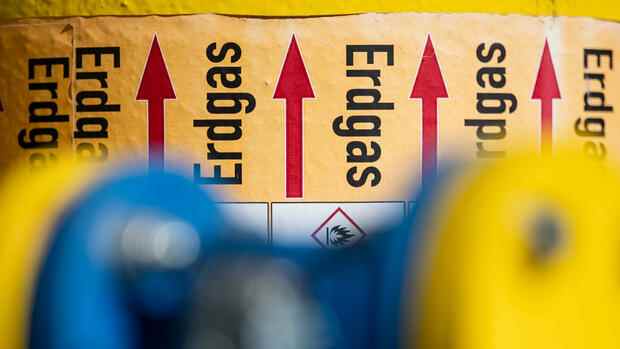Berlin In the Chancellery on Friday, the atmosphere was almost like that in the football stadium. Nobody should be left alone with the burdens caused by the energy crisis, declared Federal Chancellor Olaf Scholz (SPD), in keeping with the world-famous anthem of the Liverpool football club “You’ll never walk alone”.
And so the Chancellor announced new relief in the fight against high gas prices. Scholz said: “We agree that we will bring further relief on a permanent basis.”
Uniper and Co. can then pass on 90 percent of the costs they incur because Russian gas deliveries fail and they have to procure expensive replacements. This should then be passed on to all gas consumers. “That can be two cents per kilowatt hour. But that can also be a higher amount, ”said Scholz. The surcharge burdens a family of four with around 200 to 300 euros per year.
Top jobs of the day
Find the best jobs now and
be notified by email.
Relief should therefore come in several ways. The focus is on a reform of the housing allowance. Scholz announced that the circle of beneficiaries would be expanded at the turn of the year. In addition, a flat-rate heating fee is to be introduced. Special assistance for pensioners and students is also planned.
Olaf Scholz: “Will join Uniper with 30 percent”
The reorganization of unemployment benefits should also be part of the relief. Labor Minister Hubertus Heil (SPD) presented this this week. Accordingly, the standard rates should “rise appropriately”. The reform should “definitely” come into force on January 1st, said Scholz. The government is also examining how to protect tenants from payment defaults in the event of particularly high energy costs.
Further relief in further rounds of talks
The federal government also wants to increase corporate aid. The subsidy program for companies affected by high energy costs, which started a few days ago and has so far been limited to September, is to be extended. The safeguards with state guarantees and the loan program of the KfW development bank should also run longer.
In addition, Scholz announced further relief that should result from the “concerted action”. This informal round of talks between politicians, employers and trade unions will meet again in mid-September. “No one will face the future alone,” declared the Federal Chancellor. As a country, you will “get through the challenges very stably”.
It is not yet possible to foresee what further relief there could be in the course of the concerted action. The aim should be to protect citizens with low incomes even more. Marcel Fratzscher, President of the German Institute for Economic Research (DIW), recently said: “Politicians must find a way to cushion the hardship, especially for low-income households.”
Fratzscher supports a proposal by the Protestant welfare organization Diakonie to pay a crisis surcharge of at least 100 euros to recipients of basic security or housing benefit for a period of six months.
Criticism of the government’s plan also comes from within its own ranks. The apportionment procedure is “much too complicated and expensive in this situation,” explained the economic policy spokesman for the SPD, Bernd Westphal. “It doesn’t need that now.” Instead, Westphal calls for a temporary price cap for the gas suppliers, which they would have to pass on.
This idea has been circulating for a long time. However, the federal government rejects them because it is not clear whether the prices will give consumers incentives to save on gas. Westphal suggests: “The cap should only apply to basic needs, so as not to completely eliminate the incentive to save.”
>> Read here: 580 percent increase on the previous year – electricity prices climb to record levels
In the federal government, differences had recently become publicly clear as to how further relief should be dealt with. In particular, Federal Finance Minister Christian Lindner (FDP) had pointed out that there was hardly any financial leeway for new relief.
Financial relief is probably not a problem
The relief announced on Friday is not a problem for the time being, according to sources in the Ministry of Finance. The surcharge will not be that high and the additional burden on consumers will not be dramatic. Therefore, there is no problem with the financing of the relief.
The Federal Chancellor declared that nobody should be left alone with the burdens caused by the energy crisis.
(Photo: dpa)
The federal government plans to no longer make use of the exception rule of the debt brake from next year. However, this is increasingly being questioned, including by leading Green politicians.
Relief and other challenges caused by the difficult economic situation cost a lot of money, said Green co-boss Omid Nouripour: “We’ll see how we want to do it all without fresh money and with the debt brake.”
When asked whether the debt brake could be adhered to in 2023 in view of new relief, Chancellor Scholz only replied: “We have the financial leeway that we need.”
More: The German economy is on the brink of recession – the only ray of hope comes from within Germany. A comment
